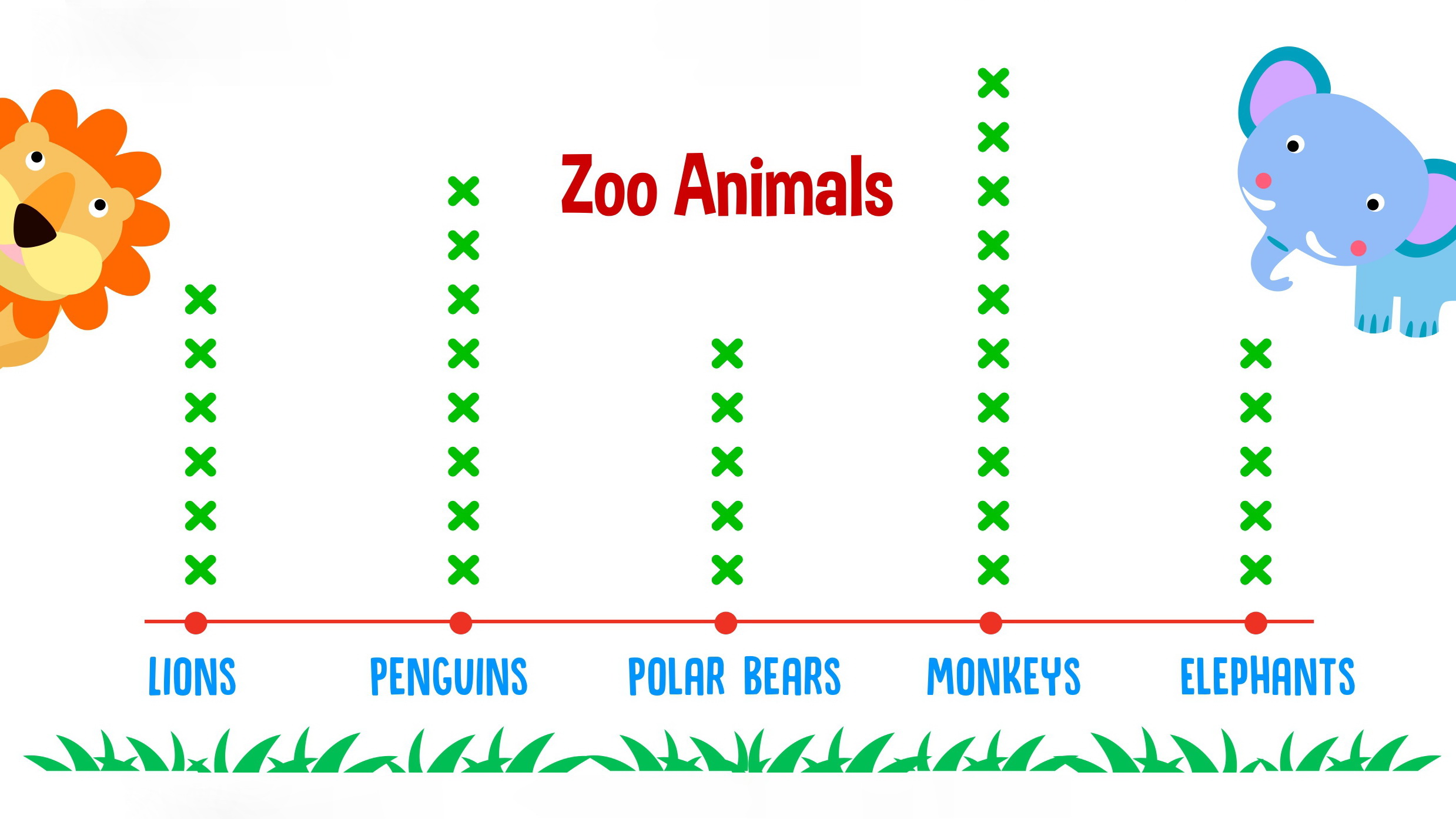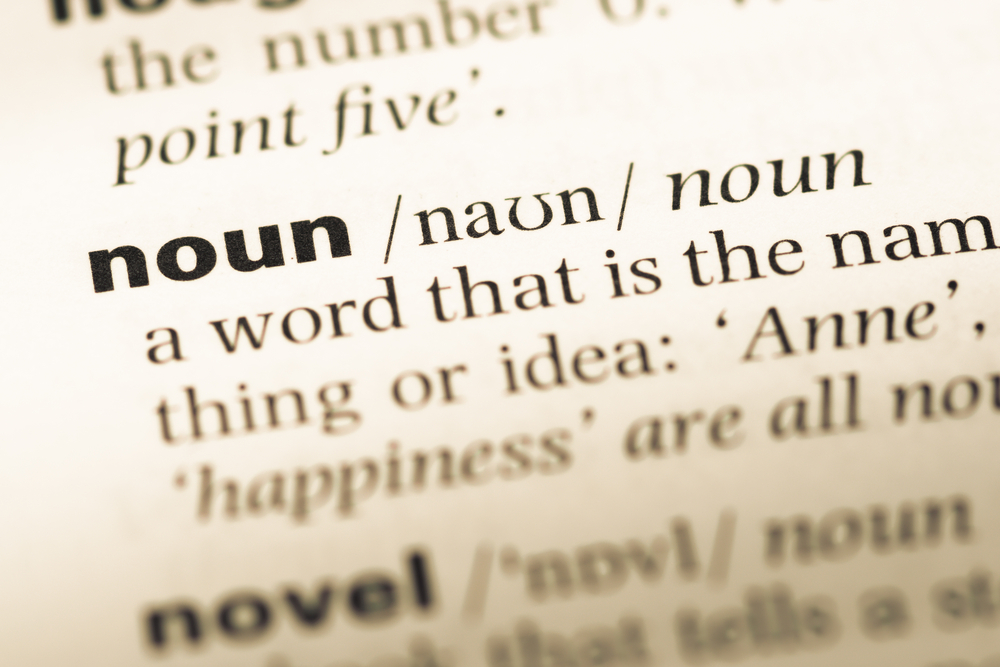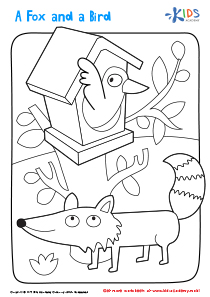Easy Phonics worksheets activities for Ages 3-4
3 filtered results
-
From - To
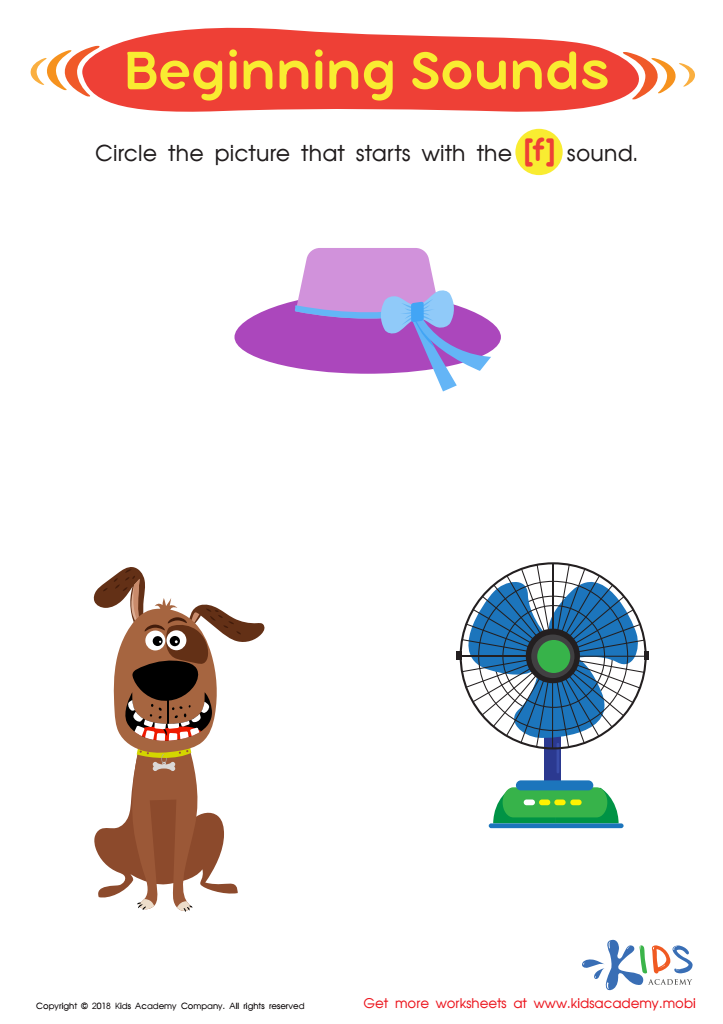

Beginning Sounds Assessment Printable
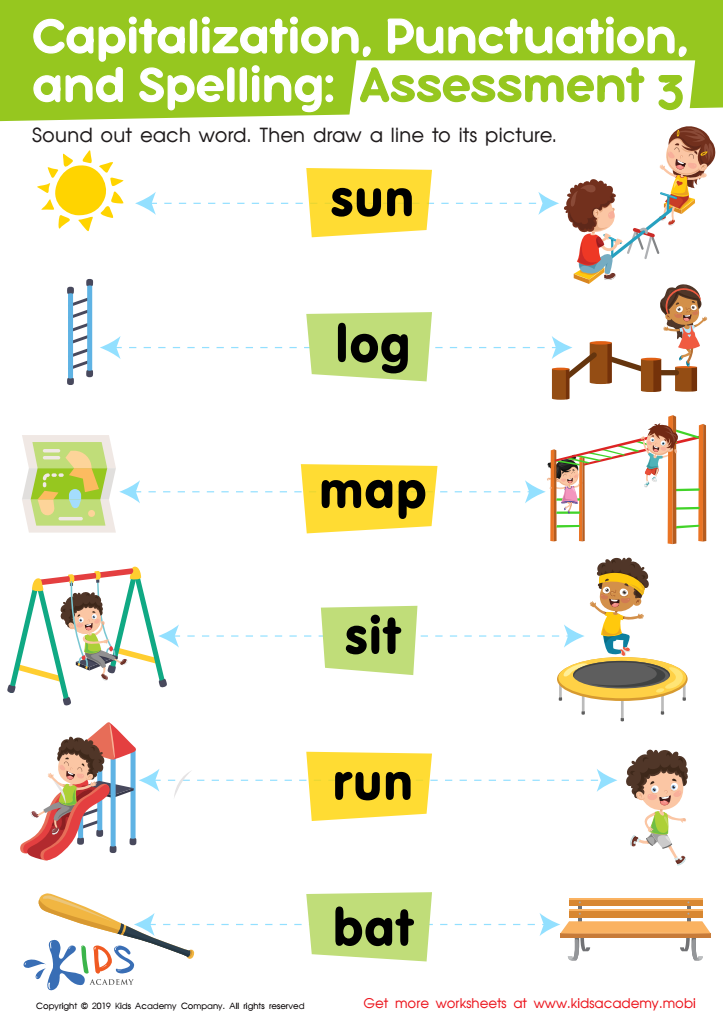

Capitalization. Punctuation. Spelling. Assessment 3 Worksheet
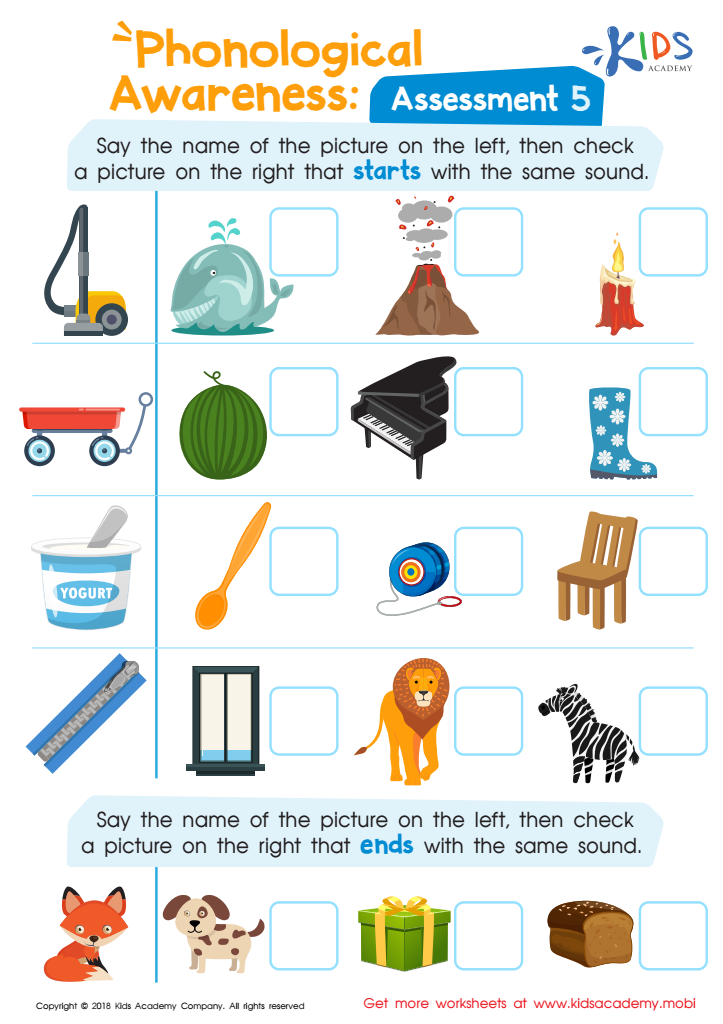

Phonological Awareness: Assessment 5 Worksheet
Easy Phonics worksheets activities stand as a cornerstone in the foundational stages of reading and language acquisition for young learners. These tools are invaluable because they simplify the complex process of understanding how letters and sounds form words. Phonics, as a method of teaching reading, emphasizes the correspondence between sounds and the letters that represent them. Through Easy Phonics worksheets, children engage in activities designed to gradually enhance their ability to decode words, laying a solid groundwork for fluent reading and effective communication.
One of the primary reasons Easy Phonics worksheets activities are so useful is their ability to cater to diverse learning styles. Whether a child is a visual, auditory, or kinesthetic learner, Phonics worksheets can be adapted to meet their unique learning needs. They often include a mix of coloring, matching, and tracing exercises that make learning not only educational but also entertaining. This variety ensures that learning to read becomes an enjoyable and motivating experience for children.
Furthermore, these worksheets are designed to build confidence. As children recognize patterns, blend sounds, and eventually read whole words, they experience a sense of achievement. This positive reinforcement encourages them to tackle more challenging words and complex sounds, fostering an environment where learning progresses naturally and with enthusiasm.
Easy Phonics worksheets activities also offer the flexibility needed for individualized learning. Some children may need extra practice with certain sounds or blending techniques, and these worksheets can be selected to target specific areas of difficulty. This tailored approach ensures that no child is left behind, and each one has the opportunity to progress at their own pace.
In conclusion, Easy Phonics worksheets activities are an essential tool in early education, offering a structured yet flexible approach to learning how to read. They cater to different learning styles, build confidence in young readers, and allow for personalized learning paths. By incorporating these activities into the learning curriculum, educators and parents can provide children with the foundation they need to become proficient readers and effective communicators.
 Assign to the classroom
Assign to the classroom


